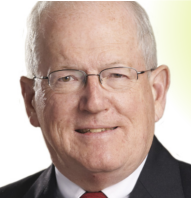State budget tops the list, but redistricting, voting rules are up there too
The New Hampshire Legislature began its 2021 session under unique circumstances and a varied menu of proposals to consider, some old, some new.
The circumstances of the Covid-19 pandemic have presented the House and Senate with challenges about how to meet, hear bills, vote as a whole and stay safe. A number of Republicans, now with comfortable majorities in both houses, somehow think it is a measure of their conservatism or courage, or something, to act irresponsibly, fail to observe safety concerns and endanger others. The majority, as usual, is a group of responsible citizens dedicated to doing the people’s business safely.
The state budget is and will be getting a lot of attention. But with the coming of the census data, sometime later this year, redistricting of electoral districts also will be a major assignment for legislators.
The proposal for a bipartisan commission to undertake the task, vetoed by Governor Sununu in the last session, is back, but notwithstanding its great logic and merit, has little chance of passage by the GOPcontrolled chambers, which can fashion electoral districts in their favor, when possible.
Congressional districts also are the subject of redistricting, and there have been rumors that a major shift in their composition might be proposed, putting Manchester, which always has been in the 1 st District, into the 2 nd District, and putting Republican towns in the 1 st, so that district would be likely to elect a GOP Congressman. Do not bet on that happening.
Among other measures are bills related to voting. Many proposals seek to extend the emergency measures passed for voting during the pandemic last year, like noexcuse absentee voting, pre-processing of ballots, and other changes which arguably made voting easier. Other proposals, generally advanced by Republicans, require higher levels of proof for voters registering at the polls or participating in other parts of the process. Perhaps leaving things as they were before the pandemic, where New Hampshire had among the highest voter participation in the nation, would not be the worst idea.
Some traditional favorite proposals of the GOP are back, this time perhaps with a better chance of passage. Two of them are of particular note. So-called “right-towork” legislation, which would prohibit requiring union membership in order to hold a job, seems to have a better than even chance to pass.
An enhanced “school choice voucher” measure, in which a certain amount of state funds can be used by students to help pay for any school of their choice, has also been heard and has generated the traditional debate about whether this would gut public school funding, or provide greater options for parents and competition which would make all offering better.
While that is an interesting theoretical debate, the present proposal is the most expensive yet, and promises to bring out large crowds, even if virtual, on both sides.
One interesting proposal, not on the radar screens of those thinking about political intrigue and controversy, is an extensive revision of the healthcare advance directives law.
Proposed by Sen. Thomas Sherman, M.D., this bill proposes to revise the living will, durable power for attorney for healthcare, and surrogacy statutes. These are the laws, first passed in the 1980s and 1990s that allow patients to name others to make medical decisions for them, if and only if they cannot make them for themselves, express wishes for end-of-life care or enable healthcare providers to designate a surrogate to make decisions for patients unable to do so.
Questions of protecting vulnerable elderly, avoiding inadvertently allowing suicide, protecting moral and religious values, and helping the healthcare system operate efficiently, all come into play. Providing patients with easily understood forms obviously is a noble goal. Allowing healthcare providers someone to consult about patient care is a practical need. Preserving the value of human life is critical. Coming to consensus is hard.
All of this interesting debate takes place amid the familiar debate of carrying guns in the State House, wearing masks, getting heard, and getting the job done, which is a different challenge for each of our 424 representatives and senators. The vast majority of these people are serious about representing their constituents. They are faced with a vast array of challenges this year, more than most, and deserve our thanks.
Brad Cook is a Manchester attorney. The views expressed in this column are his own. He can be reached at bradfordcook01@gmail.com.